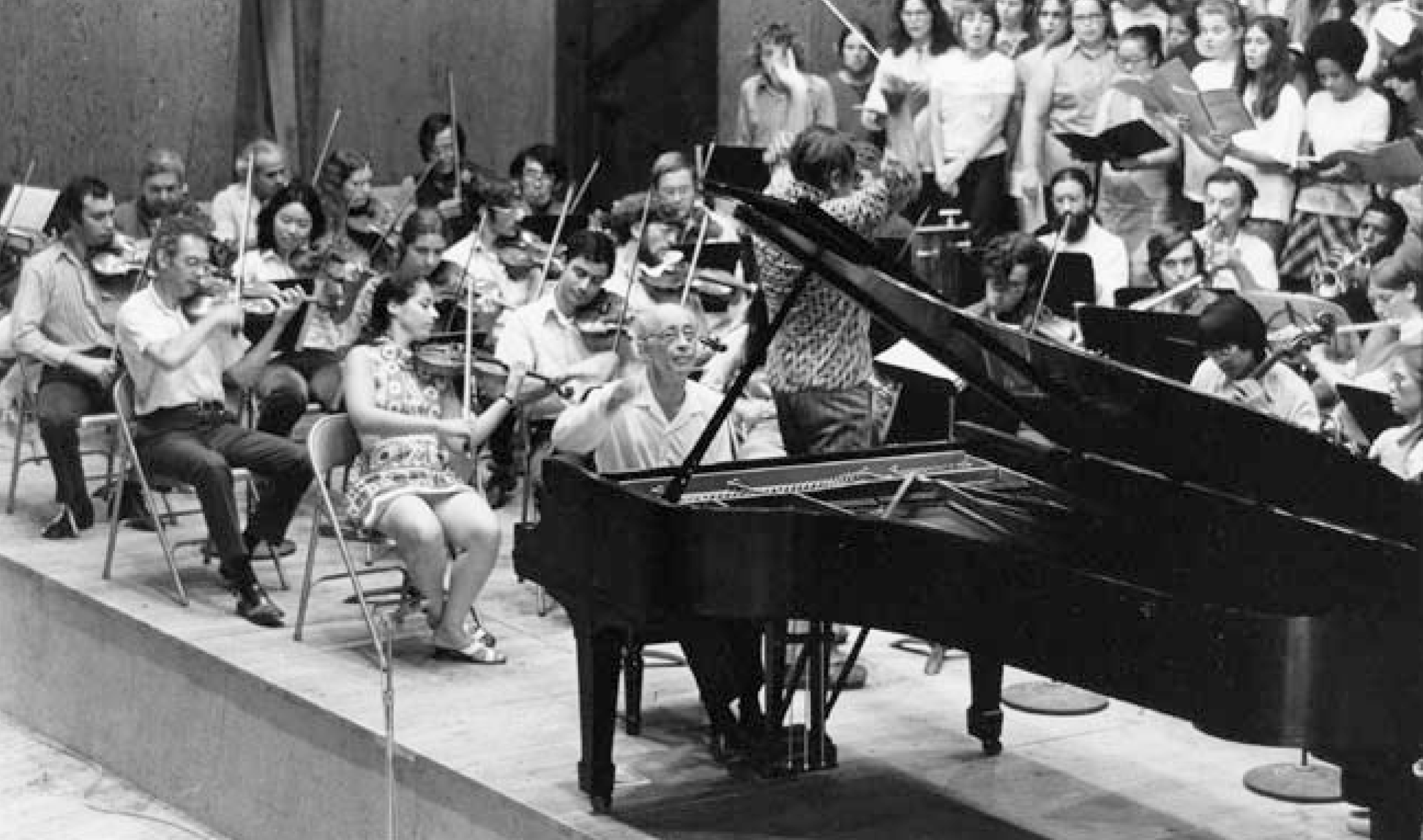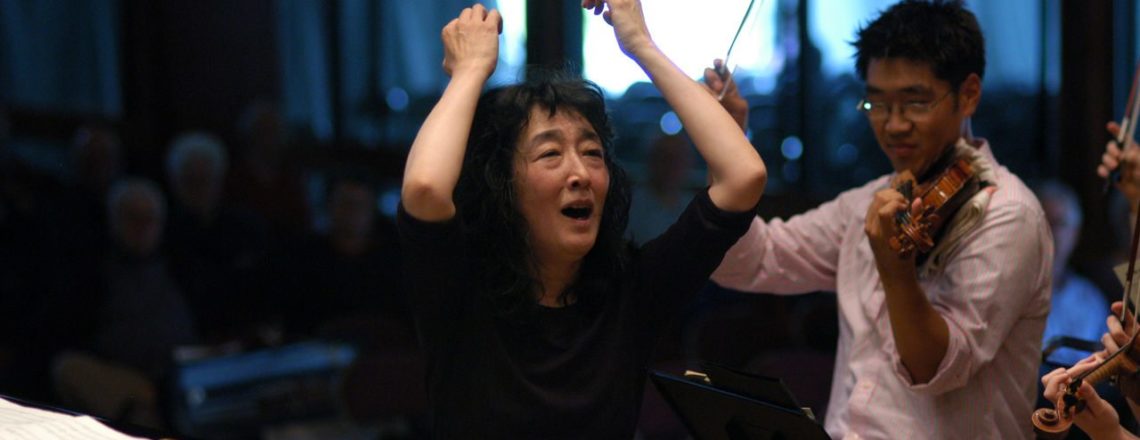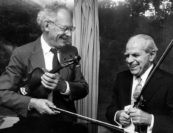In the vast communal memory of highlights at Marlboro, one work almost always enters into conversation, and that is not chamber music at all, but the Beethoven Choral Fantasy.
It began as the season’s finale in 1957 with Alexander Schneider conducting the Festival orchestra, Rudolf Serkin as soloist, and a chorus made up of Blanche Moyse’s chorale plus anyone who cared to join (auditions not required): townspeople, spouses of participants, even instrumentalists who felt they’d rather sing for a change. And it continued for 30 years, by popular demand. Luis Batlle, whose job it was to rehearse the chorus, ruefully recalls one elderly gentleman from town who consistently sang a fifth below pitch. No matter; for once, enthusiasm counted as more important than ability.

Beethoven’s Choral Fantasy with Rudolf Serkin as soloist and Leon Kirchner conducting the Marlboro Festival Orchestra. Photo by Woodrow Leung.
What made this one work so remarkable, say witnesses, was the power, coupled with great delicacy, that characterized Serkin’s playing. It also represented community, and because it was the last performance of the summer, it constituted an emotional farewell from each participant to the others.
In many ways, the Choral Fantasy magically mirrors the Marlboro experience. For this one piece, all the musicians come together in a single orchestra, and yet—as played here—it has the feel of a chamber ensemble. The piano plays with the various winds in turn, and the strings play together in intimate episodes before the singers join in with the chorus, too, building to a final crescendo. The structure of the piece even follows the arc of the summer: a dramatic beginning, a period of deep exploration, and then a final, triumphal, joyous end.
Rudolf Serkin’s last appearance in the Choral Fantasy was in 1989, two summers before his death, when, in very frail health, he made his way to the piano. “It was absolutely wrenching,” remembers former administrator Harvey Olnick. “It was valiant, as if his last strength was devoted to playing that piece.”
For two years after his father’s death in 1991, Peter Serkin performed the solo part in his father’s memory. Then the tradition ended, and a different orchestral work was chosen to culminate each season—the only large-scale composition performed during the summer. In 1999, for example, it was Bach’s Brandenburg Concerto No. 3, with Isidore Cohen leading from the concertmaster’s seat.
In 2003, the Choral Fantasy returned, triumphantly concluding the summer season with Richard Goode at the piano and Peter Oundjian conducting. It was subsequently performed each of the next 11 summers, forging a new informal tradition in which the Choral Fantasy concludes many summers but other equally compelling orchestral works may be programmed as well. For example, the 2015 and 2017 seasons culminated in Mozart’s Jupiter and Linz Symphonies, respectively.
Rudolf Serkin was once jokingly asked if Beethoven composed the Choral Fantasy for Marlboro. He answered, “No… but he approves.”
If you plan to attend the final concert of the season with hopes of hearing the Beethoven Choral Fantasy, we always recommend contacting us in advance about that particular summer’s programming.



